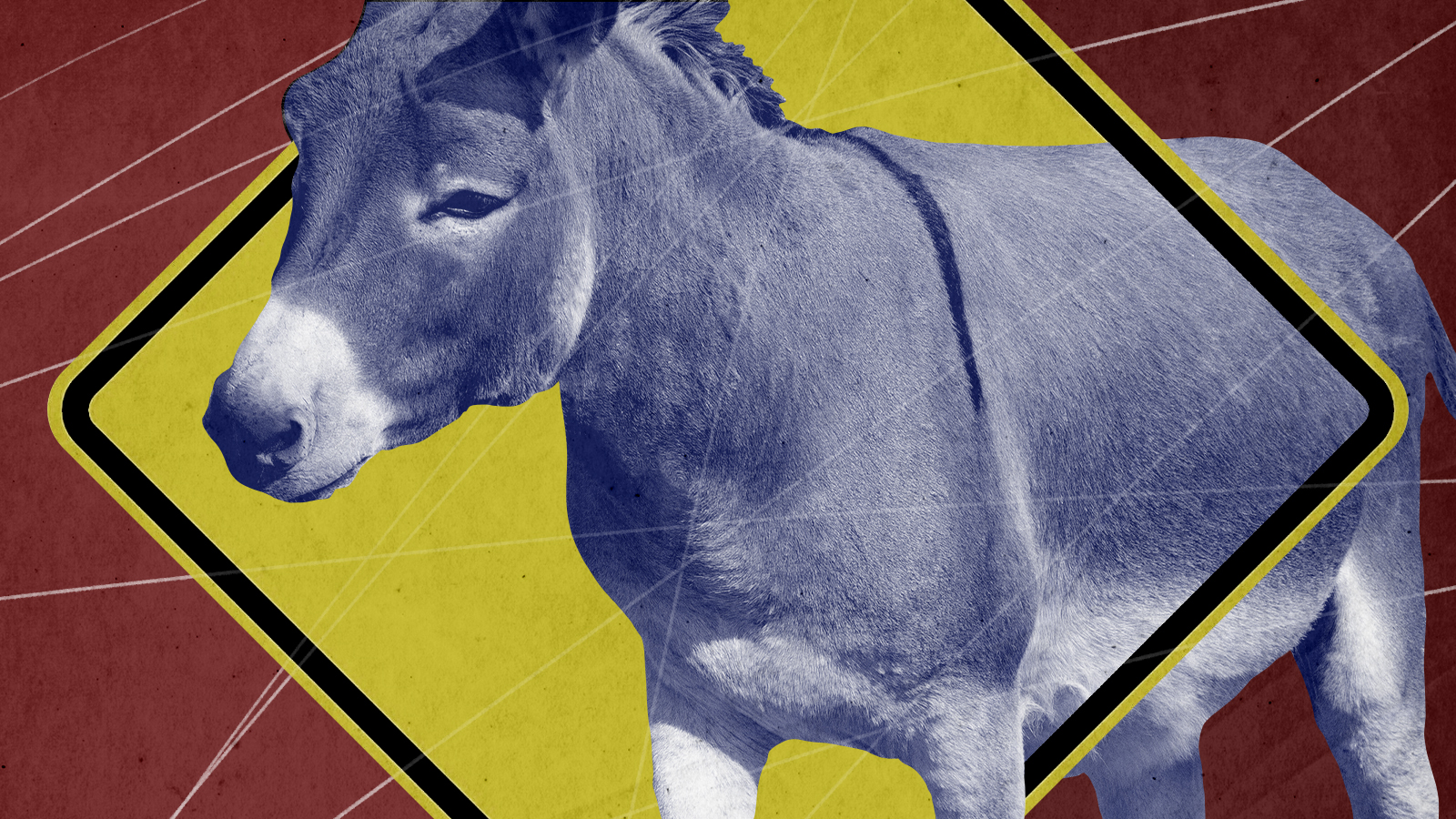Democrats hit a dead end


A free daily email with the biggest news stories of the day – and the best features from TheWeek.com
You are now subscribed
Your newsletter sign-up was successful
Is this the end of Democratic governance? The debate over voting rights is over for now, infrastructure talks are still dragging on, and the filibuster isn't going anywhere. Democrats seem lost about what to do next, except tear their hair out and point fingers at each other. The party's control of the White House, Senate, and House of Representatives is just a few months old, and it feels like the fun part might already be over.
It's also difficult to see when the good times might return.
Democrats hold a thin margin in both legislative branches, and the party that controls the White House usually suffers congressional losses during the midterm elections. It's not inevitable that history will repeat itself, but the party's strategies have hinged on getting the big parts of President Biden's agenda passed before the 2022 election season, after which it might be too late. Publicly, at least, there doesn't seem to be much of a Plan B.
The Week
Escape your echo chamber. Get the facts behind the news, plus analysis from multiple perspectives.

Sign up for The Week's Free Newsletters
From our morning news briefing to a weekly Good News Newsletter, get the best of The Week delivered directly to your inbox.
From our morning news briefing to a weekly Good News Newsletter, get the best of The Week delivered directly to your inbox.
Plan A — passing dramatic legislation to address climate change and strengthen the social safety net — always depended on eliminating, or at least weakening, the filibuster. Just to repeat the obvious: Democrats have just 50 votes and Vice President Kamala Harris' tie-breaker vote in the 100-member Senate; it takes 60 votes to overcome a filibuster. As long as Republican obstruction is a given and aided by the rules, Democrats can't honestly promise a bold or innovative governing agenda. The best they can offer voters is relative competence in day-to-day governing, and maybe the occasional goodie in a reconciliation bill. Competence is important, as we saw during Donald Trump's mishandling of the COVID-19 emergency. But it's not terribly compelling — not to voters, and certainly not to the activists who provide the party with foot soldiers and energy at election time.
There's a danger when commenting on politics to believe that the way things are now is the way they will always be. But it's also the case that the Democrats are stymied by gridlock and — through gerrymandering, vote restrictions, and demographics — face a future with an ever-narrower path to power. It will take something dramatic to change that equation. Otherwise, you have to wonder if the end is near.
A free daily email with the biggest news stories of the day – and the best features from TheWeek.com
Joel Mathis is a writer with 30 years of newspaper and online journalism experience. His work also regularly appears in National Geographic and The Kansas City Star. His awards include best online commentary at the Online News Association and (twice) at the City and Regional Magazine Association.
-
 ‘Restaurateurs have become millionaires’
‘Restaurateurs have become millionaires’Instant Opinion Opinion, comment and editorials of the day
-
 Earth is rapidly approaching a ‘hothouse’ trajectory of warming
Earth is rapidly approaching a ‘hothouse’ trajectory of warmingThe explainer It may become impossible to fix
-
 Health insurance: Premiums soar as ACA subsidies end
Health insurance: Premiums soar as ACA subsidies endFeature 1.4 million people have dropped coverage
-
 ‘The forces he united still shape the Democratic Party’
‘The forces he united still shape the Democratic Party’Instant Opinion Opinion, comment and editorials of the day
-
 How are Democrats turning DOJ lemons into partisan lemonade?
How are Democrats turning DOJ lemons into partisan lemonade?TODAY’S BIG QUESTION As the Trump administration continues to try — and fail — at indicting its political enemies, Democratic lawmakers have begun seizing the moment for themselves
-
 How are Democrats trying to reform ICE?
How are Democrats trying to reform ICE?Today’s Big Question Democratic leadership has put forth several demands for the agency
-
 Democrats push for ICE accountability
Democrats push for ICE accountabilityFeature U.S. citizens shot and violently detained by immigration agents testify at Capitol Hill hearing
-
 Big-time money squabbles: the conflict over California’s proposed billionaire tax
Big-time money squabbles: the conflict over California’s proposed billionaire taxTalking Points Californians worth more than $1.1 billion would pay a one-time 5% tax
-
 Democrats win House race, flip Texas Senate seat
Democrats win House race, flip Texas Senate seatSpeed Read Christian Menefee won the special election for an open House seat in the Houston area
-
 Did Alex Pretti’s killing open a GOP rift on guns?
Did Alex Pretti’s killing open a GOP rift on guns?Talking Points Second Amendment groups push back on the White House narrative
-
 Is Alex Pretti shooting a turning point for Trump?
Is Alex Pretti shooting a turning point for Trump?Today’s Big Question Death of nurse at the hands of Ice officers could be ‘crucial’ moment for America
